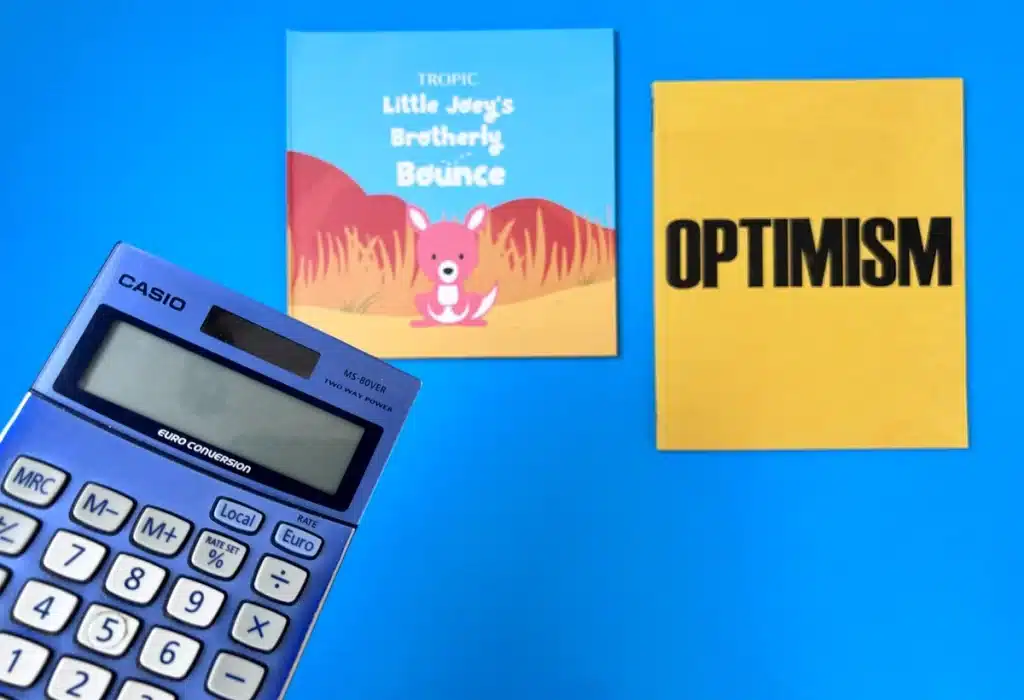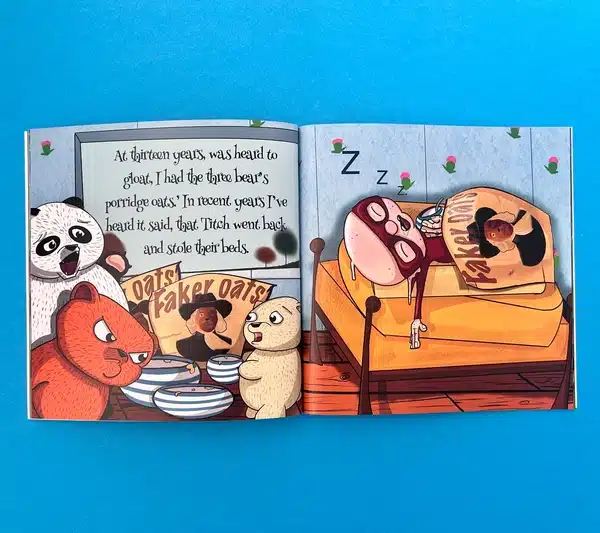How Much Does it Cost to Print a Book?


Self-publishing has made it easier for authors to share their work without going through traditional publishers, but it also has its own expenses that new authors should be aware of.
Even though it seems cheaper to publish your book this way, costs can increase and affect your profits. Each part of self-publishing, like editing and marketing, has its own expenses.
If you want to know how much it costs to print a book in the UK, read the blog ahead to learn about the possible price ranges to make the self-publishing journey easier.
Why knowing printing costs is important?
Understanding the costs of self-publishing is very important for managing your budget well. When you know where each dollar goes, it helps you to avoid extra costs and have a clear idea of the overall cost of printing a book.
This way, you can invest in what really matters for your book's success. You can plan better by clearly understanding the average cost of printing a book. This can lead to a successful publishing journey without lowering the quality of your work.

Use Ex Why Zed
Printing a book can be challenging with unpredictable costs, high initial investments, and balancing quality with affordability.
Ex Why Zed provides affordable, high-quality printing services and personalised support to help you get great value. You can easily get a quick quote and choose the best binding and paper. Our project builder makes everything simple.
Visit Ex Why Zed today to get started and turn your publishing dreams into reality! Or chat with us now to get more details.

What are the different factors that affect the cost of printing a book?
Understanding book printing costs is key to pricing your book right and budgeting well. It helps you balance quality and cost and guides your marketing and financial plans. Many things influence the costs of self-publishing. Here are some important factors to consider:
- Paper types and quality
Your paper choice plays a big role in how your book feels in a reader's hand. It also affects your overall printing cost.
| Paper Type | Characteristic |
| Standard colour | Moderate weight, economical, perfect for text-heavy books |
| Premium colour | Heavier, more substantial feel, ideal for image-heavy books |
| Standard Black & White | Lightweight and most cost-effective, it is ideal for novels |
| Premium Black & White | Higher quality, heavier, makes blacks and greys pop |
These typical paper options vary in cost, with premium colour and black & white being the pricier options. However, better paper quality enhances the reading experience and reflects the overall quality of your work, so it's worth investing in.

- Book size and page count
The size of your book can affect its appearance and the cost of printing. Common sizes are 6 "x 9" for hardbound novels and 5.5 "x 8.5" for paperbacks. Sizes are also made for specific types of books, like photography or cookbooks.
When considering the size of your book, keep in mind that a hardback book will generally cost more to print than a paperback, and the number of pages will also have a significant impact on the cost.
While it might be tempting to shrink fonts or margins to save money, it's important to remember that this can compromise readability. Instead, focus on choosing a size that aligns with your content and is appealing to your target audience, encouraging caution when making cost-cutting decisions.

- Binding types and prices
Binding gives your printed book a final look and is important when figuring out total costs.
| Binding Type | Characteristic |
| Perfect Binding | Affordable, professional look, used in paperbacks |
| Saddle Stitch | Economical, ideal for booklet or brochures |
| Hardcover | Premium, durable and elegant, recommended for special editions |
| Spiral | Flexible & lays flat, perfect for workbooks or manuals |
Perfect binding is a popular choice for print-on-demand services. Hardcover binding, while more expensive, offers an upscale look and feel, ideal for a premium product. Remember, the binding should align with your book's purpose and your marketing strategy.
- Print run size
The size of the print run dramatically impacts the cost per unit of your book in the publishing world. When you print in bulk, the cost of each book can be lower. On the other hand, print-on-demand can keep your starting costs low and eliminate the need to manage inventory. However, this method might lead to a higher cost for each unit. New authors often choose a mix of both methods. They start with a small print run and then use print-on-demand for future sales.
- Embossing and foiling a book cover
For special finishes, consider embossing your hardback book or using foil plates to press your title into the cover. This finishing option adds visual appeal to your book, and the cost starts at £280, covering the manual labour and cost of the plates. This is a flat fee for 1 - 500 copies.

- Printing paperweight and quality
The weight and quality of the paper affect how thick your book's pages will be. Thicker books generally cost more to print. This is because they require more paper, which increases material costs, and they often take more time and resources to bind. If you're producing academic workbooks, 80 gsm paper is a good, cost-saving option. For higher-end colour books, consider thicker 150 gsm paper. Remember, sticking with 80 gsm helps keep production expenses low.
- Book cover and design
Every book cover uses CMYK printing, a 4-colour process that adds depth and quality to your book. The finish, whether matte or gloss lamination, only slightly affects the cost. The main factor influencing your prices is the type of paper or card used.

Calculating potential revenue and return on investment
Understanding costs is only part of the picture. It's also very important to predict possible earnings and assess your return on investment. It involves knowing how royalty systems work on different platforms. You must track your book sales closely and manage your spending well to increase profits. Let's explore these details.
- Understanding royalty structures
Royalties come from book sales, and each self-publishing platform calculates them differently. For example, Amazon KDP gives royalties based on certain rules. Other platforms, like IngramSpark and Smashwords, also have their rates.
Several factors impact your royalties, such as your book's list price, printing costs, and how you distribute it. Understanding these details and setting a good price for your book can help increase your profits.
- Measuring book sales performance
Tracking sales of your book is important. It helps you change your strategy and increase your profits. Tools such as Amazon Author Central provide detailed sales data and analytics. It helps you watch how your book performs. Other platforms also offer similar features.
You can see how your marketing is doing if you check this data often. You can then change your approach if needed. You can also compare your book's performance with others in your genre. It gives you a good idea of your book's performance in the market.
- Balancing your budget and book profits
Finally, you must balance your self-publishing costs with your potential earnings. It might feel good to cut costs but remember that some things need spending. Don't skimp on important things like professional editing, a great cover design, or strong marketing.
Think about earning more than just enough to break even. Aim to make good profits from your book sales. To do this, spend wisely, keep an eye on your sales, change your marketing as needed, and create a fantastic book that readers will enjoy.
Conclusion
Breaking into the printing process can be simple and affordable. Self-publishing can be rewarding with the right planning and understanding of what things may cost. Spending money on good editing, eye-catching cover design, and solid marketing can make your book more attractive to buyers.
Pick trustworthy publishing platforms, and shape your marketing to fit your audience to reach more people and increase sales. Knowing these costs and predicting your profits will help you make self-publishing a successful project. It's about making back what you spent and achieving your dreams as an author. With smart choices and investment, your self-publishing path can be both profitable and fulfilling.
Frequently Asked Questions
How much does it cost to print a book you wrote?
The printing cost of a book you write depends on things like the format, the type of paper, and whether your book's pages are in black and white or colour. If you print fewer copies, the price for each one will be higher.
How much does it cost to print a one-off book?
Printing a single book can typically cost more than printing many copies at once. At Ex Why Zed we can print any quantity from 1 but our unit price is less the more you print. It might be wroth committing to a run of say 20-50 to help your cost per book.
The price can change based on the print-on-demand services you choose. These services are for making single copies, but they tend to be pricier. Other things that affect the final cost include page count, the book's size, paper quality, and the type of binding used.
We can produce a physical proof/sample copy first of your print spec for £58-82. Our physical proof copies are charged at our cost price to produce (includes labour, materials and set up) We don't make any profit from this.
This will be good for you to check the layout and overall feel of the book and then you can make all the necessary changes to the files before the final print run, just to advise however these will not be colour matched to the final print run. What we mean is, we won't have a press minder matching the print pixel for pixel to the printed proof when we come to print the final books.
Is it worth it to print books?
Printing books can be a good choice if you believe your readers want a physical copy of your book. It can help you sell at events or in bookstores. Plus, it allows you to control the quality of the book.
We look forward to transforming your idea into print!

